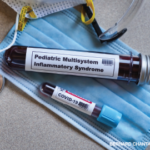NEW YORK (Reuters Health)—A six-month assessment of children with pediatric inflammatory multisystem syndrome temporally associated with COVID-19 disease (PIMS-TS) show generally favorable outcomes, but also a range of lingering issues.
Cardiac, gastrointestinal, renal, hematology and otolaryngology problems largely resolved at six months, but muscular fatigue and emotional lability were common. Long-term, serious end-organ damage occurred in some patients but was uncommon, researchers report in the Lancet Child and Adolescent Health.1
“This analysis highlights the importance of physical rehabilitation and mental health provision for patients with PIMS-TS following discharge from hospital,” says Karyn Moshal, MD, with Great Ormond Street Hospital, London, and colleagues.
PIMS-TS, also known as multisystem inflammatory syndrome in children (MIS-C), was first recognized in April 2020 and is now considered a distinct post-infectious, hyper-inflammatory syndrome.
More than 250 cases of PIMS-TS were identified in the U.K. and Ireland from March to June 2020, with clinical features that included fever, rash, conjunctival infection and gastrointestinal symptoms, sometimes progressing to multi-organ failure requiring intensive care.
“Although the acute phase of PIMS-TS has been characterized, the short-term, medium-term, and long-term sequelae remain unclear. Similarly, little is known about rehabilitation requirements after discharge from hospital,” Dr. Moshal and colleagues note.
To investigate, they monitored 46 children (mean age: 10.2 years) treated at Great Ormond Street Hospital for PIMS-TS. Most were boys (65%) and from an ethnic-minority group (80%); only 17% had pre-existing comorbid conditions.
At hospital admission, markers of systemic inflammation were elevated in all children. None of them died.
By six months, systemic inflammation had resolved in all but one child; 38 (90%) of 42 children who had positive SARS-CoV-2 IgG antibodies within six weeks of admission remained seropositive at six months.
Echocardiograms were normal in 44 (96%) of 46 children by six months.
GI symptoms that were reported in 45 (98%) children at PIMS-TS onset were still present in six (13%) children at six months.
Renal, hematological and otolaryngological findings largely resolved by the six-month mark.
Although minor abnormalities were identified on neurological examination in 24 (52%) patients at six weeks and in 18 (39%) at six months, the children had “minimal” functional impairment at six months (median Expanded Disability Status Scale score: 0).
Median manual muscle test-8 scores improved from 53 during hospital admission to 80 at six months, but 18 (45%) of 40 children showed six-minute walk test results below the third centile for their age or sex at six months.


